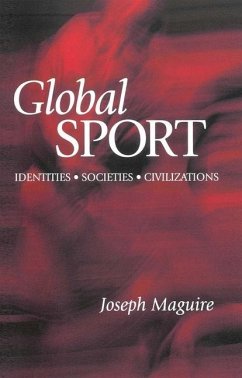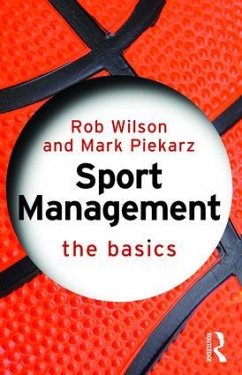Nicht lieferbar

Key Concepts in Sport Psychology
"An excellent text to offer more depth on theories and concepts within Sports Psychology and provide learners with a greater understanding of current psychological theories. The text helps in enforcing knowledge gained and also provides a plethora of references for further reading around any of the chapters covered within the text." - John Harrison, Tyne Metropolitan College "This book provides a good introduction to sports psychology, and enables students to obtain a basic understanding of the key concepts. I will recommend this book to my level 4 students." - Marie Robbins, Grimsby Institute...
"An excellent text to offer more depth on theories and concepts within Sports Psychology and provide learners with a greater understanding of current psychological theories. The text helps in enforcing knowledge gained and also provides a plethora of references for further reading around any of the chapters covered within the text." - John Harrison, Tyne Metropolitan College "This book provides a good introduction to sports psychology, and enables students to obtain a basic understanding of the key concepts. I will recommend this book to my level 4 students." - Marie Robbins, Grimsby Institute of Further and Higher Education "Provided an excellent synthesis of key topics in sport psychology. The content draws upon leaders in the field both from a research and applied sport psychology perspective." - Andrew Balsdon, Canterbury Christ Church University This book provides a focused, accurate guide for students working within the dynamic field of sport psychology. The concise and authoritative entries have been selected by experienced teachers and researchers; each one defines, explains and develops a key topic in sport psychology acting as a springboard for further reading and debate. This is a stimulating and practical resource for students defined by the clarity of writing and relevant examples. Each concept gives the student: * clear definitions * up-to-date suggestions for further reading * careful cross-referencing. Easy to use and intelligently judged this book offers the modern student the basic materials, tools and guidance for planning essays and passing exams.











